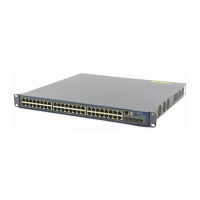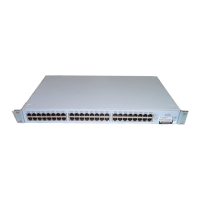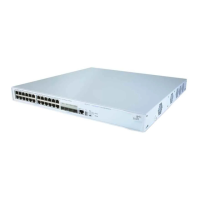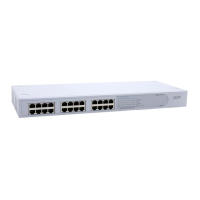266 CHAPTER 27: RIP CONFIGURATION
n
■ Using the filter-policy import command filters incoming routes. Routes not
passing the filtering will be neither installed into the routing table nor
advertised to neighbors.
■ Using the filter-policy export command filters outgoing routes, including
routes redistributed with the import-route command.
Configuring a Priority
for RIP
Multiple IGP protocols may run in a router. If you want RIP routes to have a higher
priority than those learned by other routing protocols, you can assign RIP a smaller
priority value to influence optimal route selection.
Follow these steps to configure a priority for RIP:
Configuring RIP Route
Redistribution
Follow these steps to configure RIP route redistribution:
Configuring RIP
Network Optimization
Complete the following tasks before configuring RIP network optimization:
■ Configure network addresses for interfaces, and make neighboring nodes
reachable to each other;
■ Configure RIP basic functions.
Configuring RIP Timers Follow these steps to configure RIP timers:
To do… Use the command… Remarks
Enter system view system-view --
Enter RIP view rip [ process-id ] --
Configure a priority for RIP preference [ route-policy
route-policy-name ] value
Optional
100 by default
To do… Use the command… Remarks
Enter system view system-view --
Enter RIP view rip [ process-id ] --
Configure a default metric
for redistributed routes
default-cost value Optional
The default metric of a
redistributed route is 0 by
default.
Redistribute routes from
another protocol
import-route protocol
[ process-id ] [ allow-ibgp ]
[ cost cost | route-policy
route-policy-name | tag tag ] *
Required
No redistribution is
configured by default.
To do… Use the command… Remarks
Enter system view system-view --
Enter RIP view rip [ process-id ] --
Configure values for RIP
timers
timers { garbage-collect
garbage-collect-value |
suppress suppress-value |
timeout timeout-value |
update update-value }*
Optional
The default update timer,
timeout timer, suppress timer,
and garbage-collect timer are
30s, 180s, 120s and 120s
respectively.

